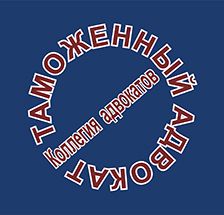New opportunities and new problems
Author: Irina VAKHTEROVA
The head of the company's legal practice Corporate Lawyers Group,
member of the Council on customs policy of Chamber of commerce and industry of the Russian Federation
From 1st of January 2012 functions the Common economic space, suggesting the free movement of goods and services, capital and labor between the three countries - Russia, Belarus and Kazakhstan. The codification of international treaties in the framework of the Common economic space (CES) should be completed by 1st of January 2015 that will lead to the creation of a Eurasian economic union. Since February, 2012 on the territory of three countries operates common authority - the Eurasian economic commission (EEC), having the supranational status, its decisions are binding for all three countries, it is not under the governments of the countries, and it had got all the powers of the Customs Union Commission.
From 1st of January 2012 started functioning the EurAsEC Court. The subjects of appeal to the court may be not only the authorities and the community of countries, but also economic entities. The competence of the court of appeals of economic entities is to ensure that any entity may challenge position, explained, adopted by the ECE and to challenge the acts and omissions of the ECE. As to the ratio of Russia's commitments under the WTO and the Customs Union, on May 19, 2011 was adopted the Treaty “On the functioning of the Customs Union in the framework of the multilateral trading system”. I would note two points: the provisions of the WTO agreement are of priority value, the rights and obligations of parties which arise from the WTO agreement, become part of the legal system of the Customs Union. Now this Treaty is applying.
Classification of goods
I will focus on the legal developments that have occurred in the three key areas: classification of goods, the customs value, the responsibility of participants of foreign trade activities. From what code is classified goods imported to the territory of the CU depends the rate of duty. Classification of goods in its essence is rather complicated, because a trader must be attributed to a particular product to a specific description of commodity nomenclature of foreign economic activity. This requires special knowledge, a clear understanding of the technical specifications of the imported goods and, in some cases, conducting additional expertise in order to confirm or refute the code which is claimed in respect of the goods.
In practice we had, for example, with such case. A Swiss company, which in Russia is located subsidiary, imported into the territory of the Russian Federation coffee machines. The company-manufacturer always believed that it produces not household coffee machines, but industrial, therefore, pointed out the relevant code and applied the rate of the import duty «zero». But once the customs authority has determined that this product is not industrial coffee machines but household, because these machines have not produced simultaneously four cups of coffee. And in accordance with the decision of the FCS from 22.12.2009 № 229-R (which currently is not acting) to industrial could not relate machines, producing less than four cups of coffee at the same time. How was solved this situation? The company was recommended to obtain the conclusion of an independent expertise. It fully confirmed the specifications that were indicated in the documents of the supplier. It was further recommended to challenge the decision of the customs authority on the classification and labeling of these machines to household, and later access to the FCS for obtaining the preliminary classification decision and initiate the decision of the ECE on the classification of goods (at the time of the CUC). The decision was taken by CUC from 09.12.2011 no 862, which indicated that the production capacity should depend not on how many cups of coffee at the same time is producing, but how much it is produced per hour. And the company continued to import their goods as production of the industrial coffee machines.
With regard to the appeal against decisions of customs authorities on the classification, it should be noted that the practice over the past two years has much changed. If earlier the arbitration courts have generally taken the decision not in favor of participants of foreign trade, now in most cases (based on our experience) decisions are in favor of traders. Here it should be noted that the arbitration court cannot independently refer the product to any code, he can only determine the legality or illegality of the actions of the customs body and to accept the decision of the customs authority to be invalid.
I wish to draw attention to the effectiveness of the EurAsEC Court. Economic entity has the right to approach the court. In November 2012, it was the decision of the court, which cancelled the decision of the CUC according to the classification, and then there was an additional opportunity to influence on the situation connected with the classification of goods.
The customs value
Traders know how important these issues, because exactly of this amount which customs value of goods will be determined, depends on the size of the customs duties. In CU operates an Agreement “On the determination of customs value of goods transported through the customs border of the Customs Union”, from 25.01.2008. Since that time slightly has changed the structure and content of the normative base of the customs value, so we can say that the law enforcement practice is changing, including arbitration. Disputes, unfortunately, not less of it, and that there are still risks of significant financial losses for companies. In our practice there was a case when the customs body compared the goods of Chinese origin to the cost of goods produced in Switzerland. Actually this is completely contrary to the agreement, but somehow the customs authority decided that these goods are the same (although the concept of «similar» is absent in the agreement), and concluded that Chinese goods should cost roughly the same as Swiss.
I want to draw attention to three legal act of the Collegium of the EEC: a recommendation from the 20.06.2012 № 1, Decision of 30.10.2012 № 202 and Solution of 13.11.2012 № 214.
They are interesting and important, because they indicates how the customs authorities may determine the customs value and to use one or another method. These solutions are good that contain a lot of examples from which to draw conclusions, correctly or not in a particular case solving the issues of the customs value.
Judicial practice is changing. If earlier 90 % of cases on the adjustment of the customs value was solved in favour of the participants in FEA, then at the present time, anyway, in the Moscow region, is not always the courts take the side of participants of FEA. Assuming this is because more thorough preparation of customs authorities in decision-making on customs value, and, perhaps more attention are focused on the observance of the procedures established for the verification of the customs value.
Responsibility
The next set of questions that I would like to highlight, - amendments relating to the responsibility of traders. Amendments to the Code on administrative offences (Federal law of 06.12.2011 № 409-FZ) came into force 07.12.2011. It changed the period of limitation for bringing persons to administrative responsibility: earlier it was equal to one year, now - two years. Moreover, it has changed the term of control, during which the customs authorities exercise such control in respect of the goods after their issue, now it is three years (previously one year).
Interesting changes have taken place in the article 16.2 part 2 of the administrative code. In particular, has changed disposition (failure to declare or unreliable declaring of commodities), which indicates that the application by the declarant of untrue information about the classification code according to HC FTA already is the composition of the offence stipulated by article 16.2. Previously this article is not concretized, what inaccurate information must be submitted to the company's actions fall under this article. There is not many Judicial practice yet. Previously, the courts were going on in the way that if the declarant is correctly indicated the description of the goods, but the wrong code, the responsibility does not occur. Let's see what will shape the practice later.
There was a judicial precedent related to the definition of penalties. In 2010 The constitutional Court decided that article 16.2 p. 1 of the administrative code of the Russian Federation in the part of determining the amount of the liability - the amount of penalty sanctions, in conformity with the Constitution of the Russian Federation. Article 16.2 p. 1 provides for responsibility for failure to declare goods in the form of a fine, which is charged based on the value of the goods and the administrative code of the Russian Federation, in principle, equal to the market value of goods determined on the basis of act. In 2010 in relation to individuals such calculation of the amount of the fine was recognized unconstitutional. In this regard, in 2012, legal company requested to the CC relation to legal persons to recognize this article unconstitutional. 26 November 2012 was proclaimed by the decision of the constitutional court, from which it follows that the application of various sanctions for physical and legal persons, and, respectively, for legal entities is possible higher level of responsibility than a physical one. Also, the court indicated that the legislation should be defined type of value you want to use to administrative fines, but the reference was further made that this applies only to individuals, that is, for legal entities within the framework of this decision, no changes occurred.
As for the changes in the criminal law, art. 188 of the criminal code of Russia «Smuggling» was abolished, and now applied art. 194 of the criminal code (Evasion from payment of customs payments», in accordance with which the liability is incurred only if the sum of outstanding organization of customs payments exceeds 2 million rubles (large size) and 10 million rubles (especially large size).
About pleasant for individuals: I want to remind the procedure for moving goods by individuals for personal use (the Agreement of 18.06.2010 in ed. the Protocol of 19.10.2011). In 2011 was increased the amount of cost of goods for personal use, which are not subject to payments when moving air transport - up to the equivalent of 10 thousand Euro. This Protocol is used temporarily, 28 November 2012, the Russian Parliament adopted a law on ratification of this Protocol, and now this rule is applicable on a permanent basis.

